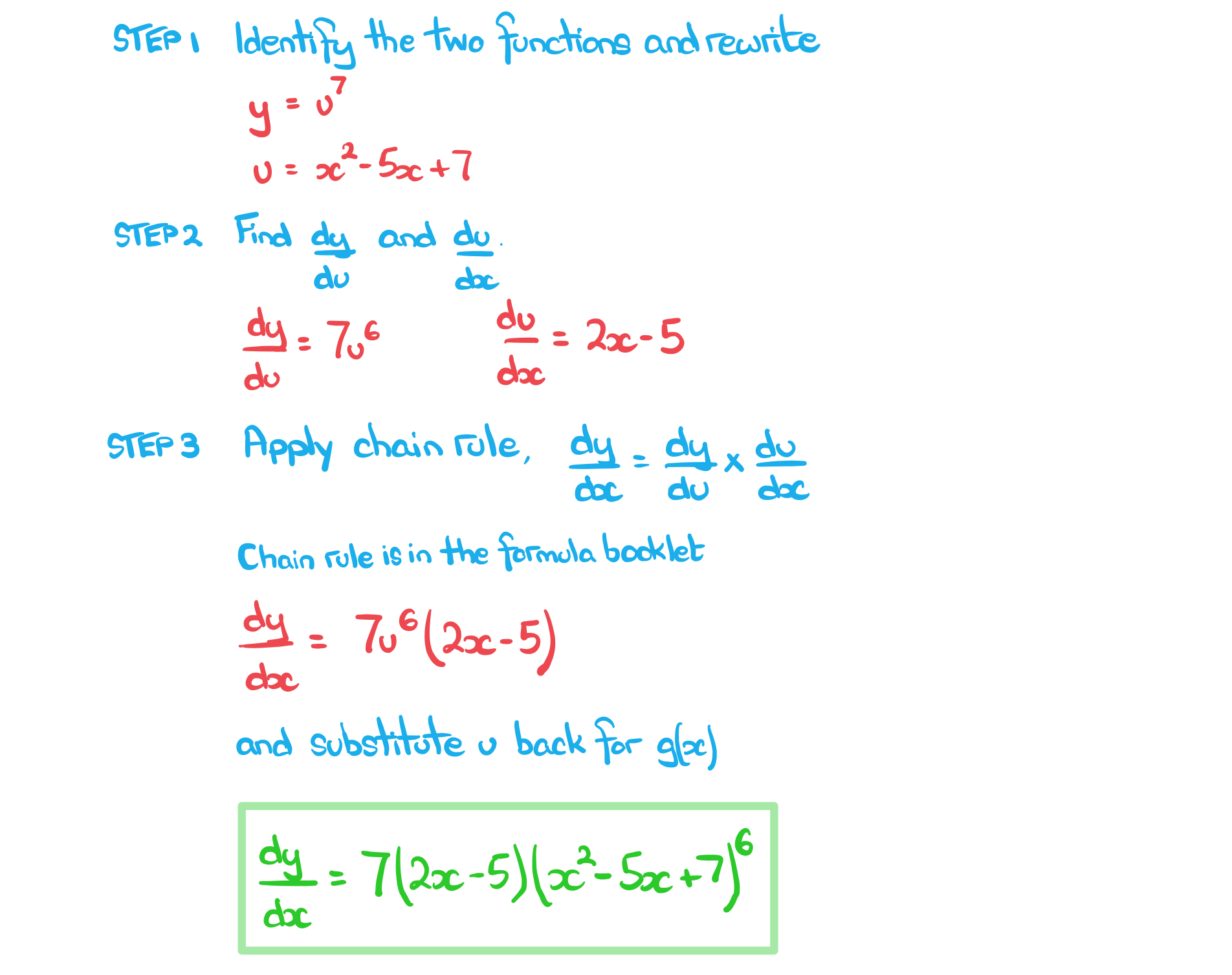Chain Rule (DP IB Analysis & Approaches (AA)): Revision Note
Did this video help you?
Chain rule
What is the chain rule?
The chain rule states that if
is a function of
and
is a function of
i.e. if
, where
then
This is given in the formula booklet
In function notation this could be written
How do I know when to use the chain rule?
Use the chain rule when you are trying to differentiate a composite function
i.e. a “function of a function”
These can be identified as the variable (usually
) does not ‘appear alone’
is not a composite function, because
‘appears alone’
is a composite function
is tripled and has 2 added to it before the sine function is applied
How do I use the chain rule?
STEP 1
Identify the two functionsRewrite
as a function of
;
Write
as a function of
;
STEP 2
Differentiatewith respect to
to get
Differentiatewith respect to
to get
STEP 3
Obtainby applying the formula
and substituting
back in for
Examiner Tips and Tricks
In trickier problems the chain rule may have to be applied more than once.
Are there any standard results for using chain rule?
There are five general results that can be useful
If... | then... |
|---|---|
Examiner Tips and Tricks
You should aim to be able to spot and carry out the chain rule mentally (rather than writing out the substitution).
Every time you use it, you can say to yourself in your head “Differentiate the first function ignoring the second, then multiply by the derivative of the second function".
Worked Example
a) Find the derivative of.

b) Find the derivative of.


You've read 0 of your 5 free revision notes this week
Unlock more, it's free!
Did this page help you?